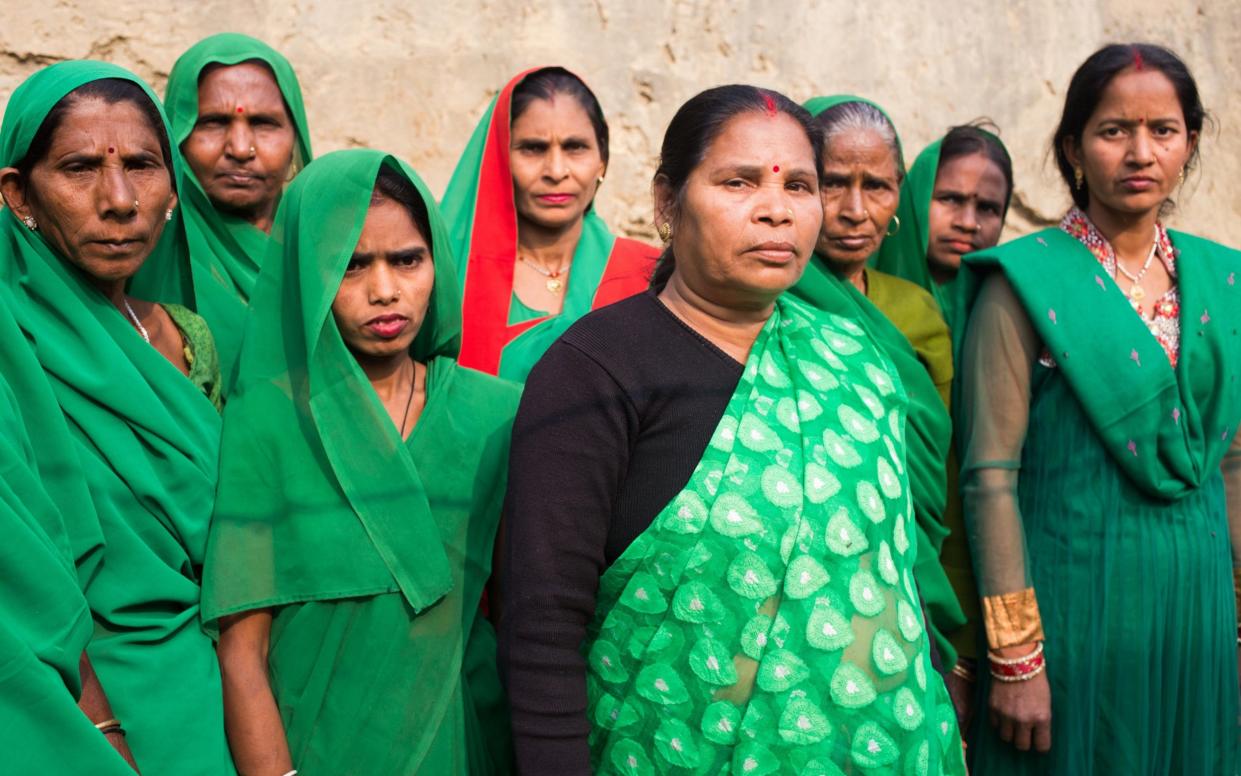The victims who sought vengeance

Men have behaved violently towards women since our common ancestors first stood upright, and I know whereof I speak. Elizabeth Flock has written an important and deeply moving book revealing how this kind of violence manifests itself today in different cultural settings, and what we are doing about it.
An award-winning American journalist, who reveals on the first page that she herself is a rape victim, Flock shapes The Furies around three stories. She calls the three sections separate books, which is apposite, as at first glance, the stories have little in common, except violent men. Book One follows Brittany, from Alabama in the US, who murdered a rapist, but failed to secure protection in court through the so-called “self-defence argument”, despite formal documentation of 33 injuries. Before the assault, Brittany had been a drug user and lost custody of her children – as Flock says, this meant Brittany presented in court as “an imperfect victim”. It counted against her as it has counted against so many. “Women in Alabama,” Flock writes ruefully, “have long fared poorly in self-defence cases.” Brittany’s patient-advocate in the mental hospital where she was incarcerated for seven months was arrested for possession of child pornography.
Book Two follows Angoori, a Dalit, the lowest caste in India and the one previously known as Untouchable. Born in Uttar Pradesh in 1963, married at 15 and the victim of endemic abuse, violence and prejudice of every stripe, Angoori rose from near-destitution to form a female gang of avengers who deployed lathis – long bamboo canes – on perpetrators of domestic violence. (In this she was following the model of Phoolan Devi, immortalised in the film Bandit Queen.)
Book Three concerns Cicek, a young Kurd who served in an all-female militia against Isis in northeast Syria. She swallowed the propaganda of Abdullah Ocalan, the Kurds’ ideological leader, “with blind acceptance”, and joined the Women’s Protection Units, or YPJ, working initially, after basic training, as a driver. Flock shows how the Western press sexualised these guerrillas, dubbing one 19-year-old YPJ fighter “the Angelina Jolie of Kurdistan”. A drone seriously wounded Cicek in Afrin, but she returned to the battlefield as a base commander at Tal Tamr.
All three of these women, Flock suggests, “handled matters on their own because the cops, courts and state failed to safeguard them”. They sought to change the status quo, “yet never fully escaped the oppressive systems they grew up in and continue to live under”.
Flock travelled widely to write The Furies and gained the sympathy and support of the women themselves and the wider community – except, that is, when her findings challenged the men supposedly in charge. She is a dogged investigative reporter – she followed Brittany for four years, made a Netflix documentary (State of Alabama vs Brittany Smith) and published a New Yorker piece on the way women with self-defence claims are being criminalised and treated as murderers. For the second section, Flock relied on a translator to converse with Angoori and others in the Hindi dialect of Bundelkhandi. For the third, she twice crossed into Syria from Iraq.
She cites academic studies and case law, including cases from the UK, for example that of Sally Challen, who killed her husband with a hammer in 2010 after decades of coercive control. In the pages of The Furies, the author works hard to embed facts within a narrative framework, adding colour to maintain reader sympathy. The book is anything but dry reportage.
So, what do the stories have in common? In these three wholly different cultures, violence is apparently the only means of survival for marginalised women. Institutions set up to protect them fail. Brittany, Angoori and Cicek had all endured abuse before in some form – personal or social or both – and as the author writes, “The ‘abuse-to-prison pipeline’ is today a much-studied phenomenon.” Did their actions ultimately help them, “and did anything systemically shift as a result?” Flock asks. There are no neat conclusions to these stories, or to The Furies as a whole. The complexities of each case and each culture are too hard to unravel, and the structural injustices too deeply rooted; and so the violence continues. But we fight on.
The Furies is published by Viking at £18.99. To order your copy for £16.99, call 0844 871 1514 or visit Telegraph Books. Sara Wheeler’s latest book is Glowing Still: A Woman’s Life on the Road

